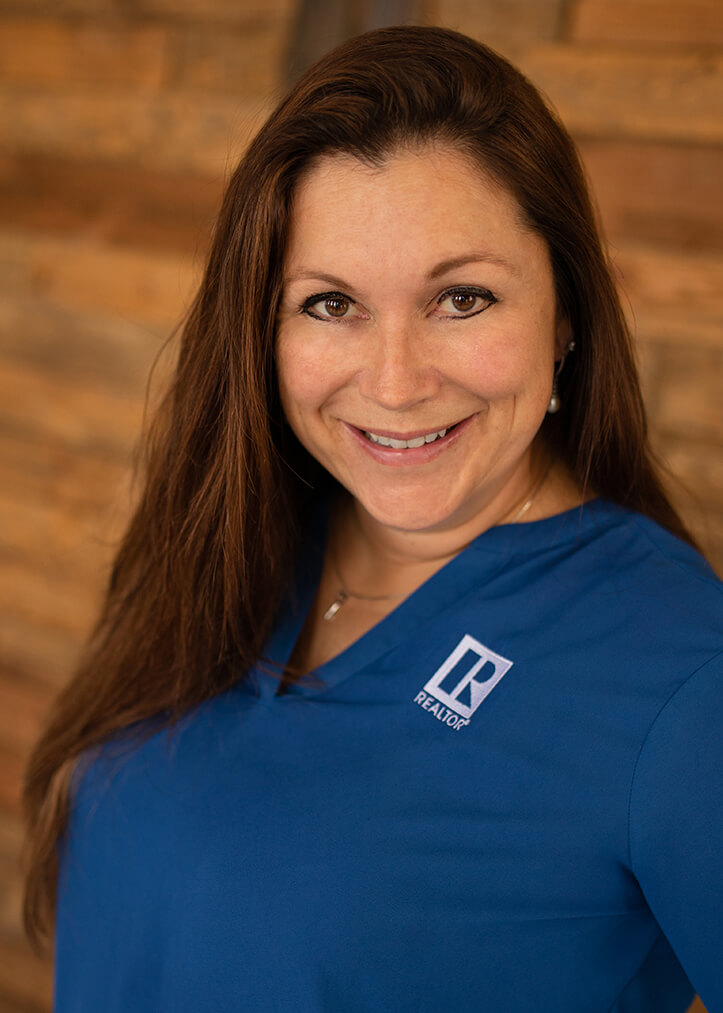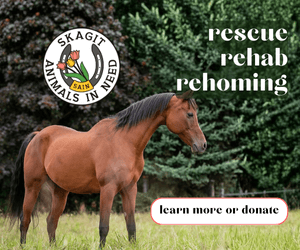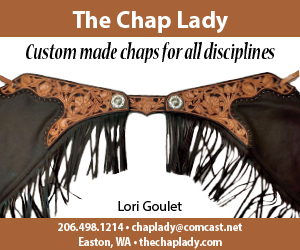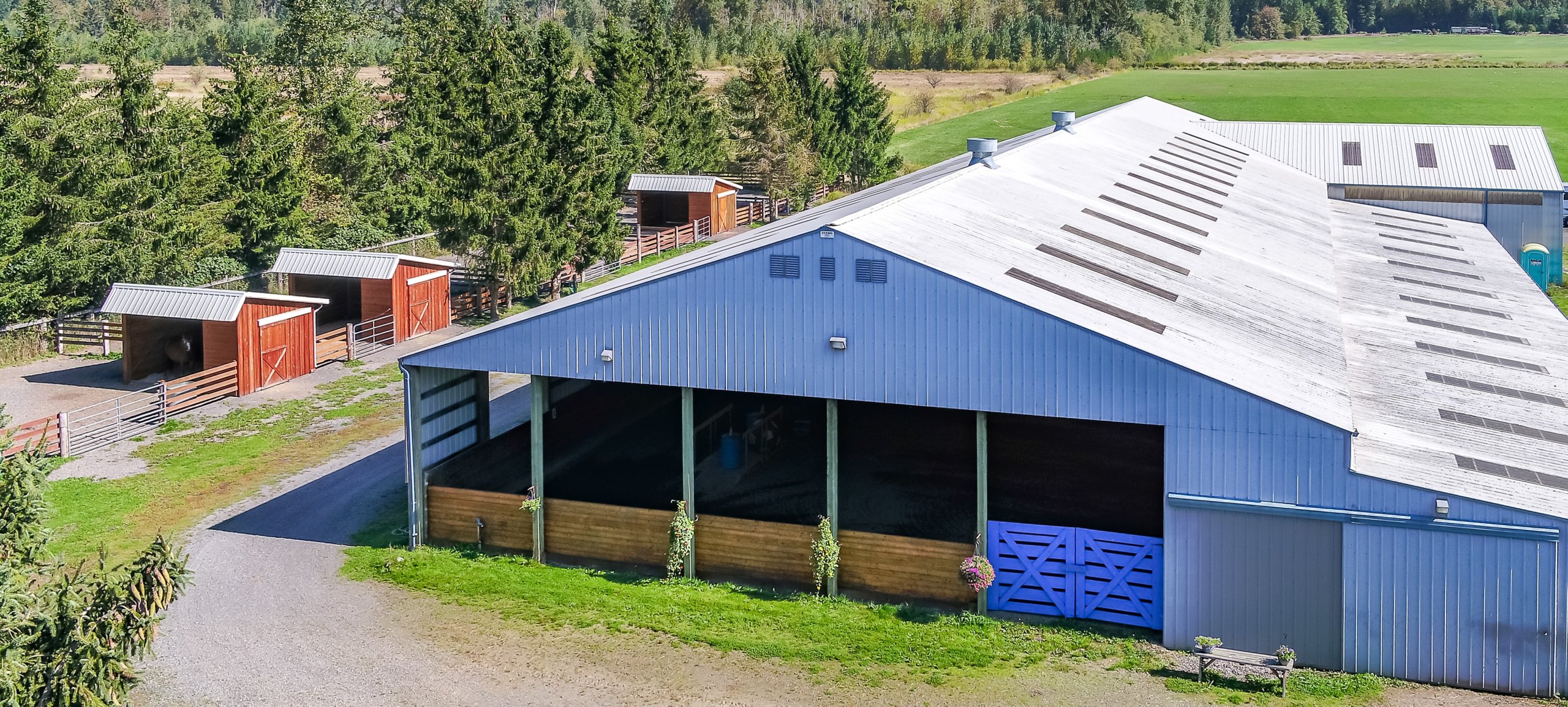A farm has been bought, and the dream of having a place in the country with horses is a reality. Even when a private farm was the original intent, sometimes the idea of boarding, training, and generating some income from the farm can emerge. While some friendly boarding can be accommodated on a regular farm policy, more varied activities brings on the need for a commercial insurance policy. I asked Rob Knode of Insurance Services Group to walk us through a detailed description of commercial insurance policies.
Once there is commercial activity on a farm, there is commercial exposure. While the real property aspect is pretty much the same as a farm policy, there may be the need for a course of construction policy to protect property assets when building a new arena, stalls, tack room or other improvements. If a current building is being updated, policies can be written to cover the existing structure at the same time as improvements.
The insurance carrier will determine a rate based on the proximity of a fire department, the age and construction of the buildings, and general upkeep of the facility. A conversation with an accountant might shed some light into the benefits of entity ownership of the facility and how cost of operations or improvements may be more beneficial coming from the commercial side rather than individual ownership. The establishment of an entity, corporation or LLC as recommended by an attorney will help separate the liability of the facility from personal liability exposure.
Now that there is commercial activity on the property, the separation from personal liability starts to widen. Think of it like this: if something were to happen on the premise and the injured party sues the DBA (doing business as) or commercial entity, would the farm policy respond? Probably not, as the farm policy is written in a personal name and does not have a duty to respond to a suit against the business. If a claim was small, an insurance carrier may step forward, but if it is a major claim, they may look for ways to get out of it. A major claim against a commercial entity would be better handled with a commercial equine facility policy.
A commercial general liability policy starts with a premises side where the insurance carrier is aware that there are equine activities on site and will address bodily injury or property damages that happen on the premises. This doesn’t always include a situation where horses are involved. For example, a broken ankle from stepping into a pothole in the driveway could result in a lawsuit. The other side of the coin of commercial general liability adds the operational side, where activities by an owner or employee could cause bodily harm or property damage. The insurance carrier will charge a premium for each exposure.
These numbers are referred to as the basis. The basis is sometimes as simple as the number of horses boarded. It might also include information on any other livestock on the premise. There are as many types of bases as there are activities and most will be addressed on the insurance application. Some of the questions will be about planned activities. Examples are horse shows, public events like clinics, training, and lessons, or tack sales. If plans are for the business to be the home stable for a local group, 4H, Pony Club or similar, there might be other questions as well.
The insurance carrier may offer suggestions on risk management based on their experience with claims over the years. The information provided determines the appropriate premium. Leaving information out to pay a lower premium can leave a facility and owner exposed, so be honest about activities.
There is a central rule to follow when looking at liability coverage at the facility: liability can either be accepted or transferred. If accepting the liability, consider the limits of coverage to purchase. The limit of liability should be more than property assets. If not, it will give up the farm or a majority of assets if there is a major claim and fault is found. If liability is transferred, the liability is exchanged under a contract of insurance for a premium. This premium is based on the activities but is limited by the amount of insurance you purchase. Just because a limit is purchased, say $1 million, it does not limit the amount of a given lawsuit. If the insurance policy is for $1 million and there is a $5 million lawsuit, the remaining $4 million of exposure is still the entity’s responsibility if found at fault.
The other option to transfer liability is to act as a commercial business and request that any other commercial business having activity regularly on the premise name the farm as an “additional insured” on their commercial policy and require a certificate as proof. Maybe this is the farrier who comes regularly, the club who uses the facility as their primary location, or the trainer who is active on the property, but is not an employee.
This is separate and different from professional liability insurance that a trainer may have to cover claims resulting from their professional activities. The farm will not want to be listed as an additional insured on this policy. It is enough to see or request evidence of insurance from the trainer to be sure that it is in place. Again, this liability can be accepted, but it’s wise to transfer this liability if possible. If there is a trainer that is exclusive to the facility, professional liability can be purchased for them, but be aware that this does not cover their activities at other facilities.
Other types of insurance become important as an equine facility develops, such as mortality insurance, but an area of particular importance is liability exposure from employees doing work on the property. Each state is different, but worker’s compensation should be addressed for these employees. In Washington, this would come from the state, but in many other states it is purchased from an insurance agent. If employees are under 16, as they often are at an equine facility, be sure to get the appropriate waiver from their parents and follow guidelines for employment of minors.
Horses are wonderful animals, and an equestrian business can be lucrative. It’s best to work with an insurance agent who understands the exposures and rest comfortably knowing that all has been done to protect assets and ensure longevity of the facility.

Allison Trimble is a Realtor® specializing in equestrian properties, farm and ranch properties, and residential real estate. She’s a former horse trainer, and a current owner, breeder, and non-pro competitor in cow horse and reining events. For many years, Allison wrote a monthly column for The Northwest Horse Source.
Learn more at www.allisonblakerealestate.com






